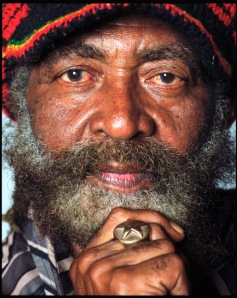Who in their right mind doesn’t just love the dulcet, velvety tone of Luther Vandross’ voice? If you listened to any R&B on the radio since 1980, then you’re no stranger to Luther’s immense catalog of sentimental ballads that kept everybody’s mamas running to the record store. Even today, when songs like “A House Is Not A Home,” “Never Too Much” and his tender rendition of “Superstar (Until You Come Back To Me)” are played, most of us can sing along word for word. 
It’s easy to assume that Luther’s industry debut was 1981’s Epic release, Never Too Much, largely because he wasn’t as visible as say, Teddy Pendergrass or Jeffrey Osborne, two black male balladeers who commanded the charts in the late ’70s and early ’80s. But the reason Never Too Much sat so well in our souls was that we’d grown familiar with his voice and loved it all along without realizing who he was. When “Never Too Much” hit the airwaves, people went, ‘Wait–isn’t this the same guy from “Glow of Love?” And didn’t I hear that voice in a Juicy Fruit gum commercial?’ Shoot, I even remember him as the voice of the Saturday morning cartoon short teaching kids about career choices, Zack of All Trades. A favorite was “Don’t Be a Blob.”He did his trademark low-register run that everybody used to try to imitate, but could never get quite right.

Luther pictured with Roberta Flack around 1980. Luther penned “Just When I Needed You” for Roberta, and it appears on the soundtrack to the 1981 film, Bustin’ Loose.
Growing up, I honestly didn’t know much more about him than his 80s and 90s work, but I read the liner notes on my mother’s record sleeves and figured out he always used the same repetroire of background singers. From there, I noticed that some of these same names like Alfa Anderson and Tawatha Agee appeared on other work related to Luther. But I didn’t realize how far back his career went until I looked at the back of my Original Soundtrack Recording of The Wiz (from Broadway, not the 1978 film) and saw his songwriter credit for “Everybody Rejoice.” He wrote that in 1973, and that song took on a new life in the film production of The Wiz as “Brand New Day,” sung by Diana Ross. Years later, I came across two albums with his group, Luther, and David Bowie’s funk collaboration with Gamble-Huff, Young Americans, which features the group as his background vocalists. That’s not to mention his numerous recordings as a session singer for damn near most of Atlantic Records’ roster and singing lead for obscure, studio manufactured disco groups like Mascara, Bionic Boogie and Lemon.
Anyway, I compiled some songs that showcase his stellar production and songwriting work that we don’t often revisit. Be on the look out for a part deux coming soon. Enjoy it and follow us at The Vinyl Room and Deeper Than Atlantis: Diggin’ In Da Crates, y’all. Peace.









